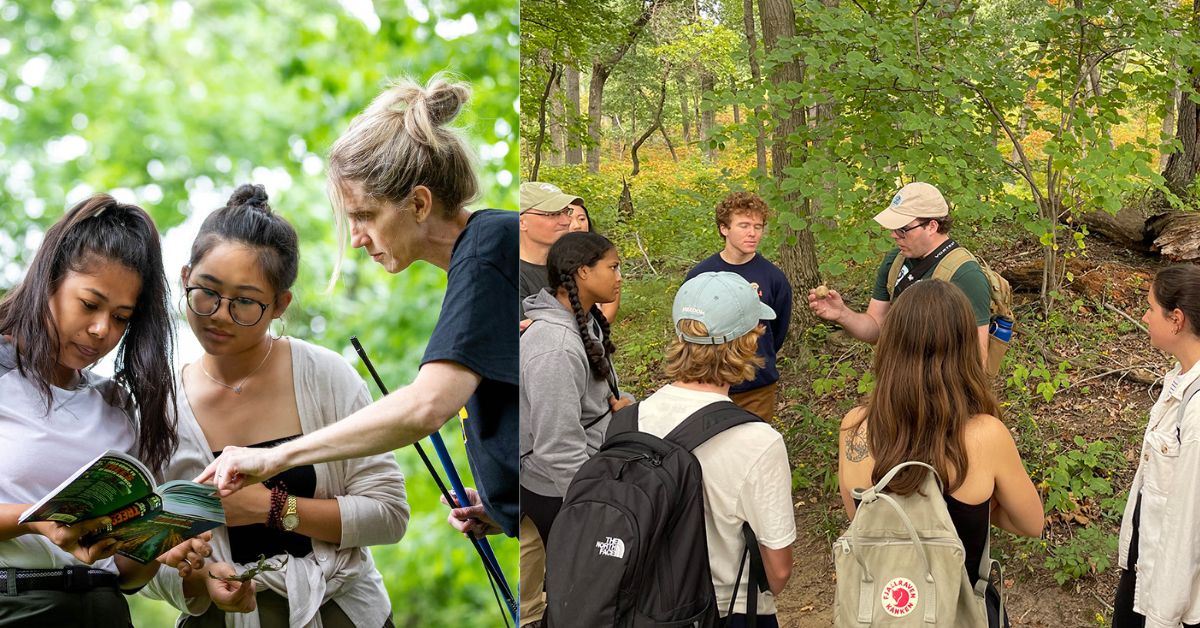Healthy Tips For Forest Field
Exploring the wonders of the forest through field research is an exciting opportunity for students to connect with the natural world firsthand. However, the thrill of discovery in the forest comes with its own set of challenges, particularly for those venturing into fieldwork for the first time. This article provides easy-to-follow tips to ensure the health and well-being of student researchers, helping them navigate the demands of the field successfully.
Physical Preparation:
Building Stamina:
Undertaking forest research often involves long treks and carrying heavy equipment. Boost your endurance through regular physical activities like hiking, jogging, or biking to prepare for the demands of fieldwork.
Strengthening your Core:
Maintain a stable body by incorporating core exercises like planks, squats, and lunges into your workout routine. This is especially important when carrying heavy backpacks or engaging in activities that require bending over for data collection.
Footwear Matters:
Invest in sturdy, waterproof boots with good ankle support to prevent blisters, strains, and falls. Comfort is key, especially when spending long hours on your feet.
Gearing Up for the Elements:
Sun Protection:
Shield yourself from the harsh sun in open forests by applying sunscreen regularly and wearing a wide-brimmed hat. Consider UV-protective clothing for added sun protection.
Staying Warm and Dry:
Adapt to changing temperatures by layering your clothing. Choose breathable base layers, insulating mid-layers, and a waterproof outer shell. Don’t forget rain gear and warm accessories for colder weather.
Insect Repellent:
Protect yourself from mosquitoes and ticks by using insect repellent with DEET or another EPA-registered active ingredient. Wear long sleeves, pants, and tuck your pants into your boots to minimize exposed skin.
Mental Resilience for the Long Haul:
Embrace the Unknown:
Fieldwork can be unpredictable, with unexpected challenges and changes in plans. Develop a flexible mindset and maintain a sense of humor to navigate uncertainties gracefully.
Stay Hydrated and Nourished:
Pack plenty of water and healthy snacks to maintain energy levels throughout the day. Avoid sugary drinks and processed foods to prevent energy crashes.
Connect with Nature:
Take time to appreciate the beauty of the forest. Immerse yourself in the sights and sounds, breathe in the fresh air, and let the natural world inspire and renew you.

Safety First: Essential Precautions:
Buddy System:
Never venture into the field alone. Always work with a partner, especially in remote areas or hazardous conditions.
Communication is Key:
Inform your supervisor about your research plans, schedule, and location. Carry a reliable communication device like a satellite phone or GPS locator for emergencies.
First-Aid Kit:
Be prepared for minor injuries and ailments. Pack a well-stocked first-aid kit with bandages, antiseptic wipes, pain relievers, and insect sting treatment.
Wildlife Awareness:
Research the local wildlife and potential dangers. Learn about encounters with bears, snakes, or venomous insects in the area.
Leave No Trace:
Respect the environment by minimizing your impact. Pack out all trash, avoid disturbing wildlife, and stick to designated trails to prevent soil erosion and habitat damage.
Making Memories, Fostering Growth:
Field research offers transformative experiences, building resilience and a deep connection with the natural world. By prioritizing health and well-being, students can confidently navigate challenges, embrace the adventure, and make the most of their time in the field. A healthy researcher is a happy researcher, and happy researchers make groundbreaking discoveries!
Bonus Tips:
Pack a headlamp or flashlight for pre-dawn starts or unexpected nightfall.
Bring a waterproof notebook and pen for recording observations and data.
Download offline maps and identify landmarks for navigation assistance.
Learn basic survival skills like building a fire or purifying water.
Share experiences and connect with other field researchers for support and inspiration.
With careful preparation, a positive attitude, and a commitment to safety, students can embark on a rewarding journey of exploration in the heart of the forest. Lace up your boots, grab your backpack, and get ready to conquer the field, ensuring that your health remains the foundation for a successful and enriching forest research experience.
Adopting Healthy – Healthy Tips For Forest Field, Healthy Tips For Forest Field students, Healthy Tips For Forest Field ideas,

